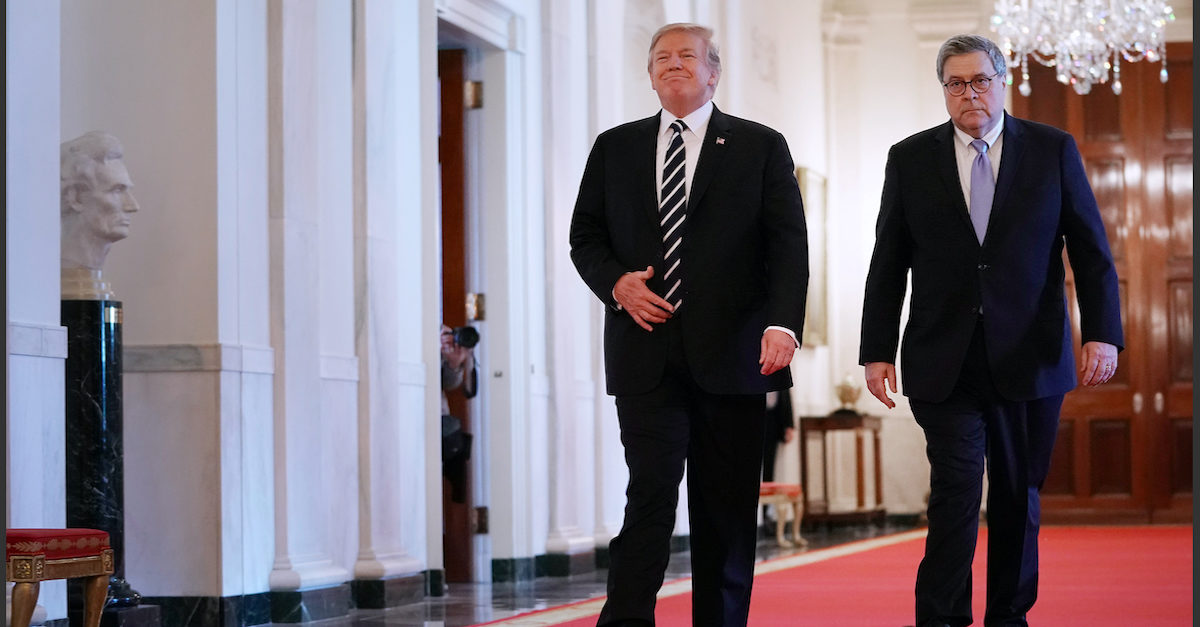
Lawyers for the House of Representatives on Thursday told a federal judge that the arguments presented by President Donald Trump and Trump lawyers amid the impeachment trial contradicted the Department of Justice argument that the House Judiciary Committee cannot enforce a subpoena of former White House counsel Don McGahn in court.
In a concise two-page letter to the U.S. Court of Appeals for the D.C. Circuit, House General Counsel Douglas Letter pointed out the hypocrisy of the administration’s dual positions, beginning with Trump’s impeachment attorneys asserting that House investigators were required to fight any legal opposition to subpoenas issued to current and former White House officials in the courts.
“In his answer to the Articles of Impeachment, President Trump criticized the House for not ‘seek[ing] to enforce’ its ‘subpoenas in court,’” Letter wrote. “President Trump’s impeachment attorney similarly faulted the House Committees for not litigating their subpoena disputes in court: ‘So take Article III of the United States Constitution and remove it? We’re acting as if the Courts are an improper venue to determine constitutional issues of this magnitude? That is why we have courts. That is why we have a federal judiciary.’”
Letter then noted how attorneys from the Trump administration had been arguing for months that the court could not adjudicate a lawsuit brought by the House Committee to enforce those subpoenas.
“By contrast, DOJ argued to this Court that courts cannot hear suits brought by a House Committee to enforce its subpoenas against the Executive Branch,” he wrote.
The letter specifically cited the arguments put forth by DOJ attorneys at oral arguments where they contended that adjudicating lawsuits to enforce the subpoenas threatened “permanent harm” to the Judiciary.
For example, DOJ attorneys told the court that “Congress, when it’s asserting its institutional prerogatives, never had standing,” and said that if the courts “resolv[e] a purely political dispute, a dispute between the political branches, it risks politicizing the court and undermining public confidence in the court.”
Reiterating that McGahn’s testimony was now “more urgent than ever,” Letter said the DOJ’s incompatible position is untenable, urging the Court to rule expeditiously on the matter.
“In light of President Trump’s argument, it is not clear whether DOJ still maintains its position that courts are barred from considering subpoena-enforcement suits brought by the House,” Letter wrote. “At the very least, President Trump’s recognition that courts should resolve such suits undermines DOJ’s contrary threshold arguments in this case, which seek to prevent the House and its committees from seeking judicial resolution of subpoena-enforcement disputes. The Executive Branch cannot have it both ways.”
In a Friday morning response, the DOJ affirmed its position that the House does not have standing to enforce a subpoena against McGahn–a position that directly contradicts the primary argument President Trump and the GOP have asserted against calling witnesses in the impeachment hearing.
Read the full House letter to the court below:
House McGahn Letter by Law&Crime on Scribd
[image via Chip Somodevilla/Getty Images]